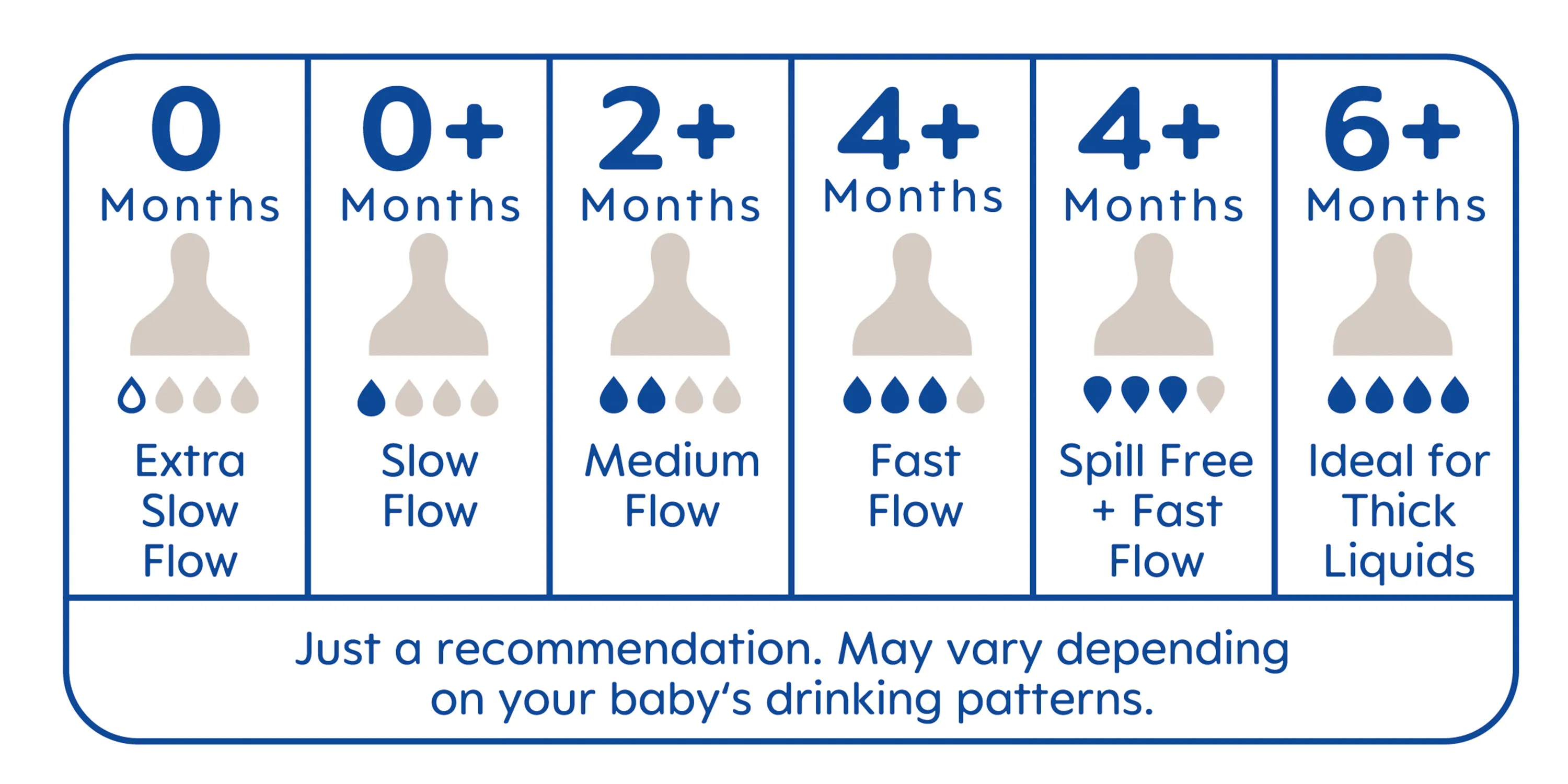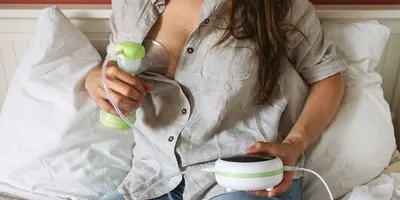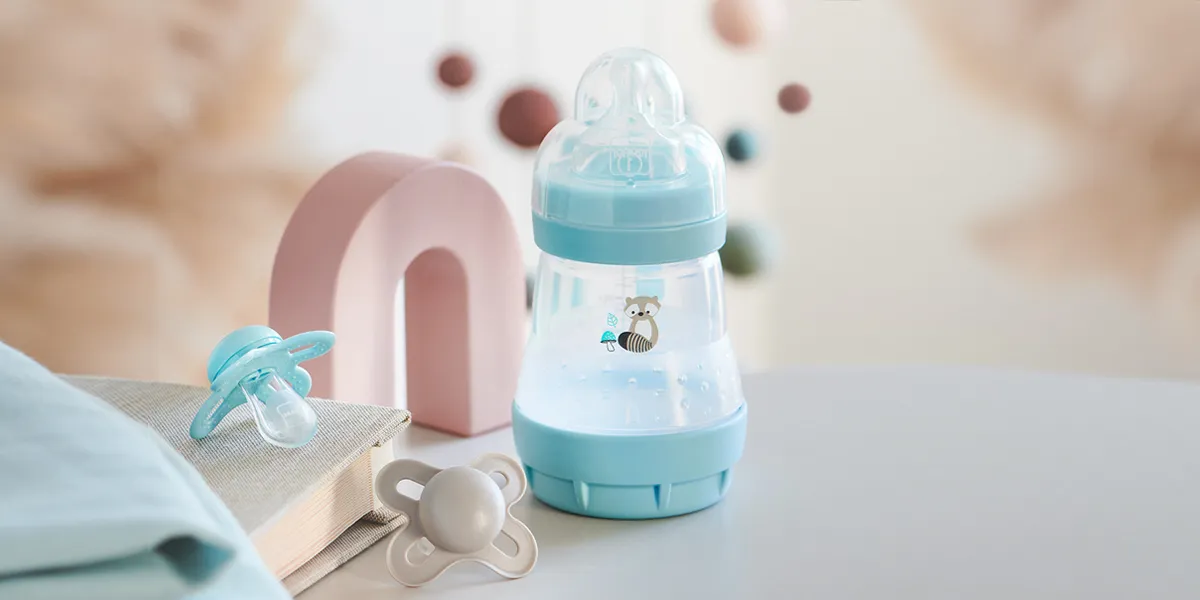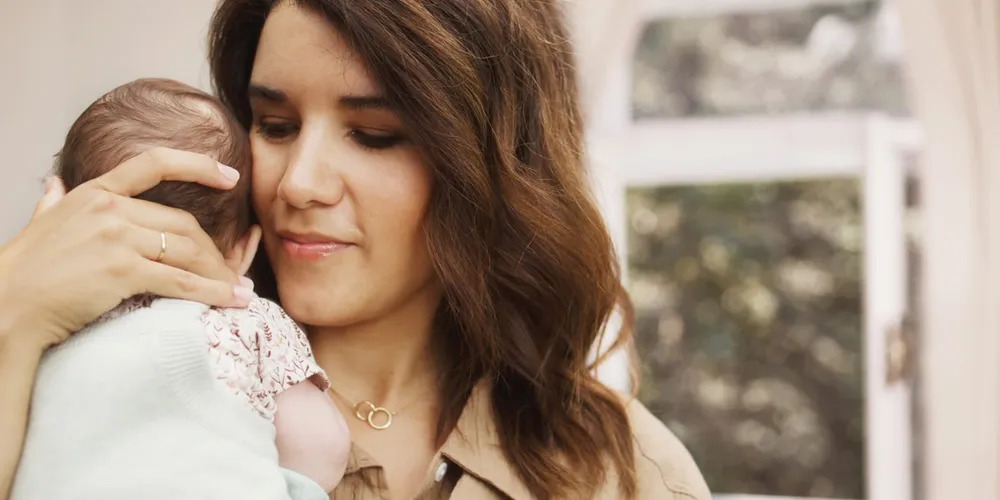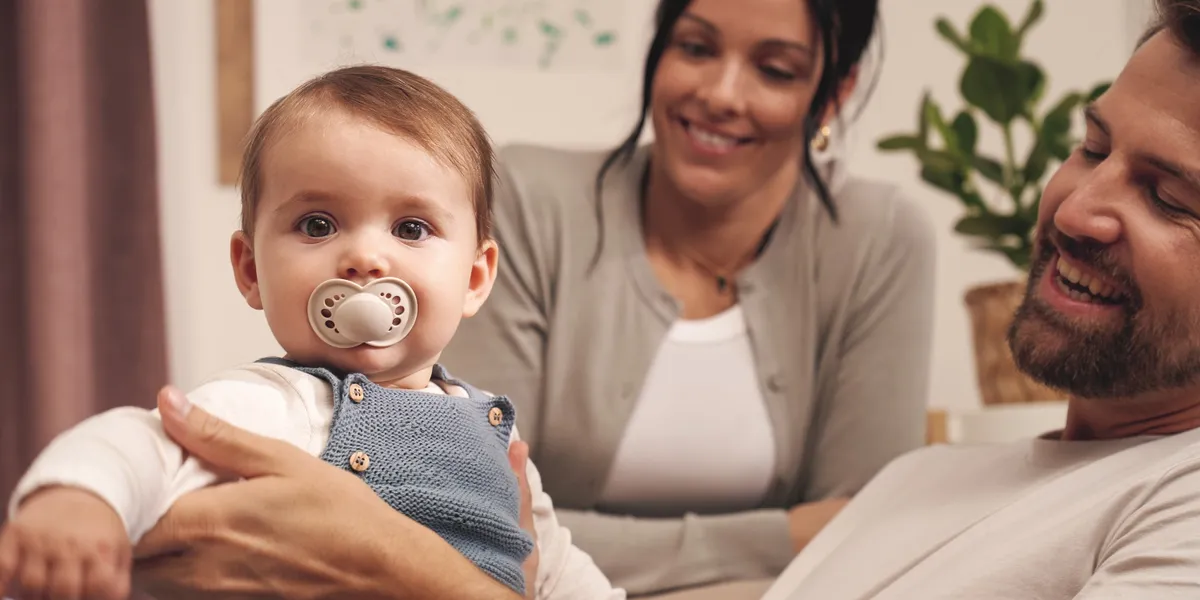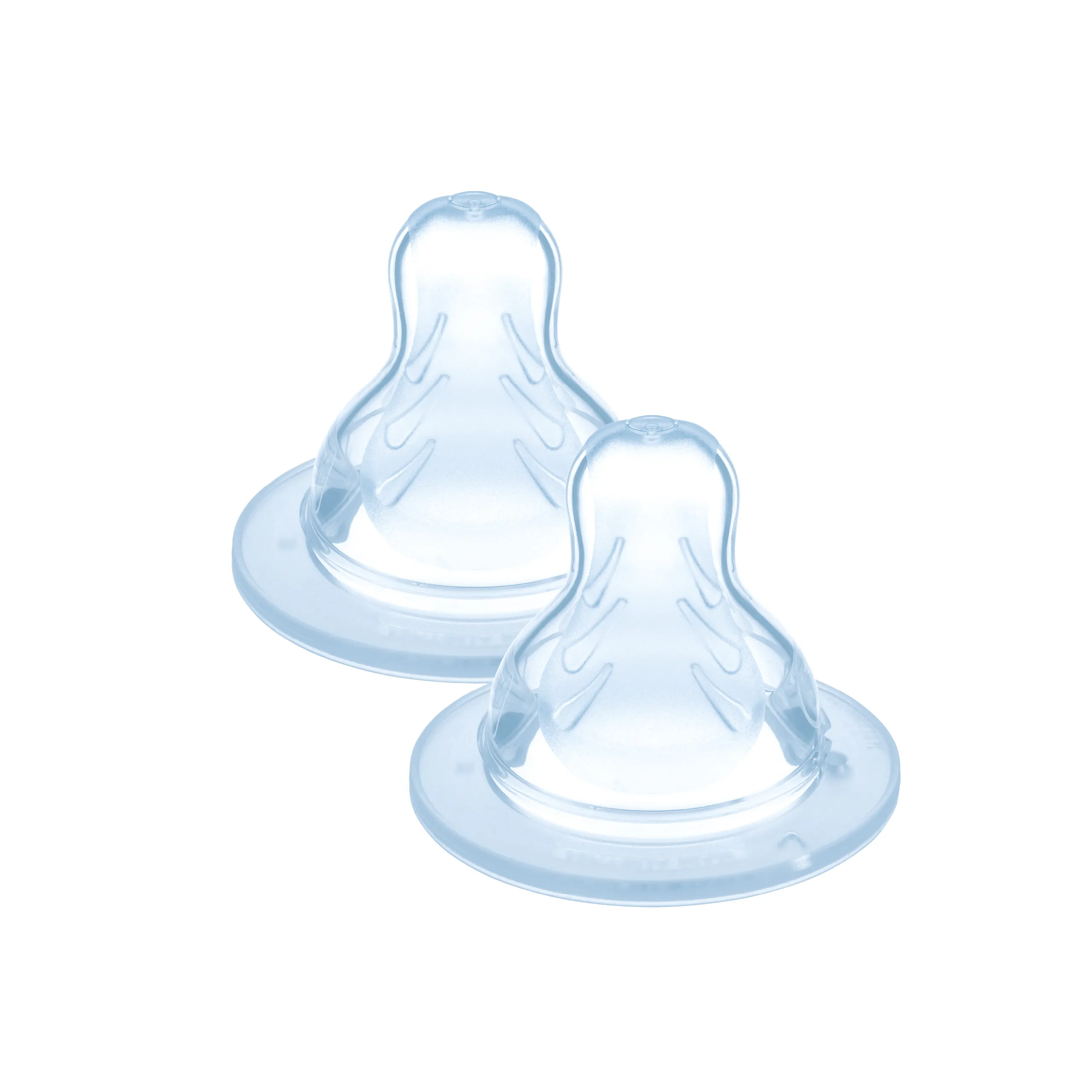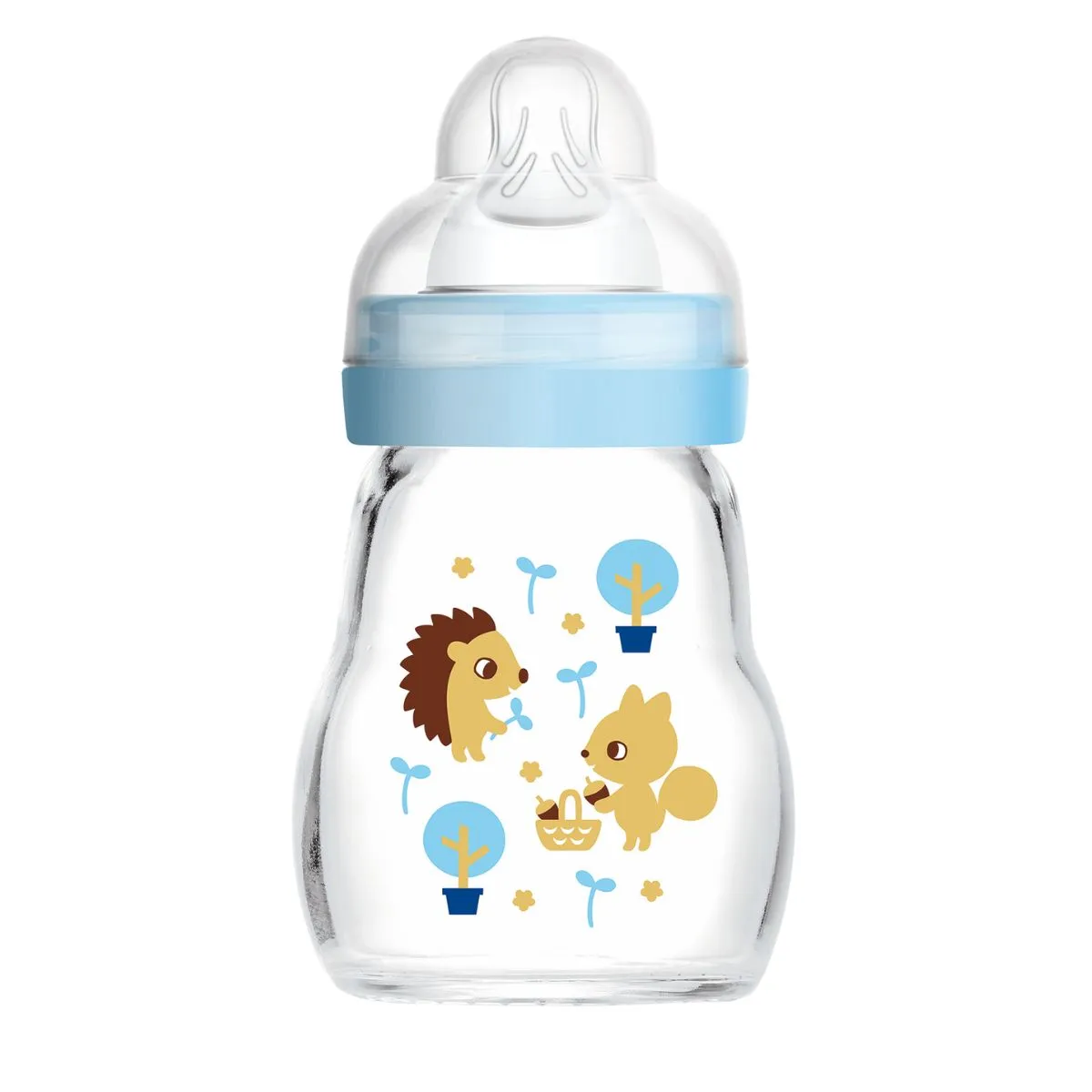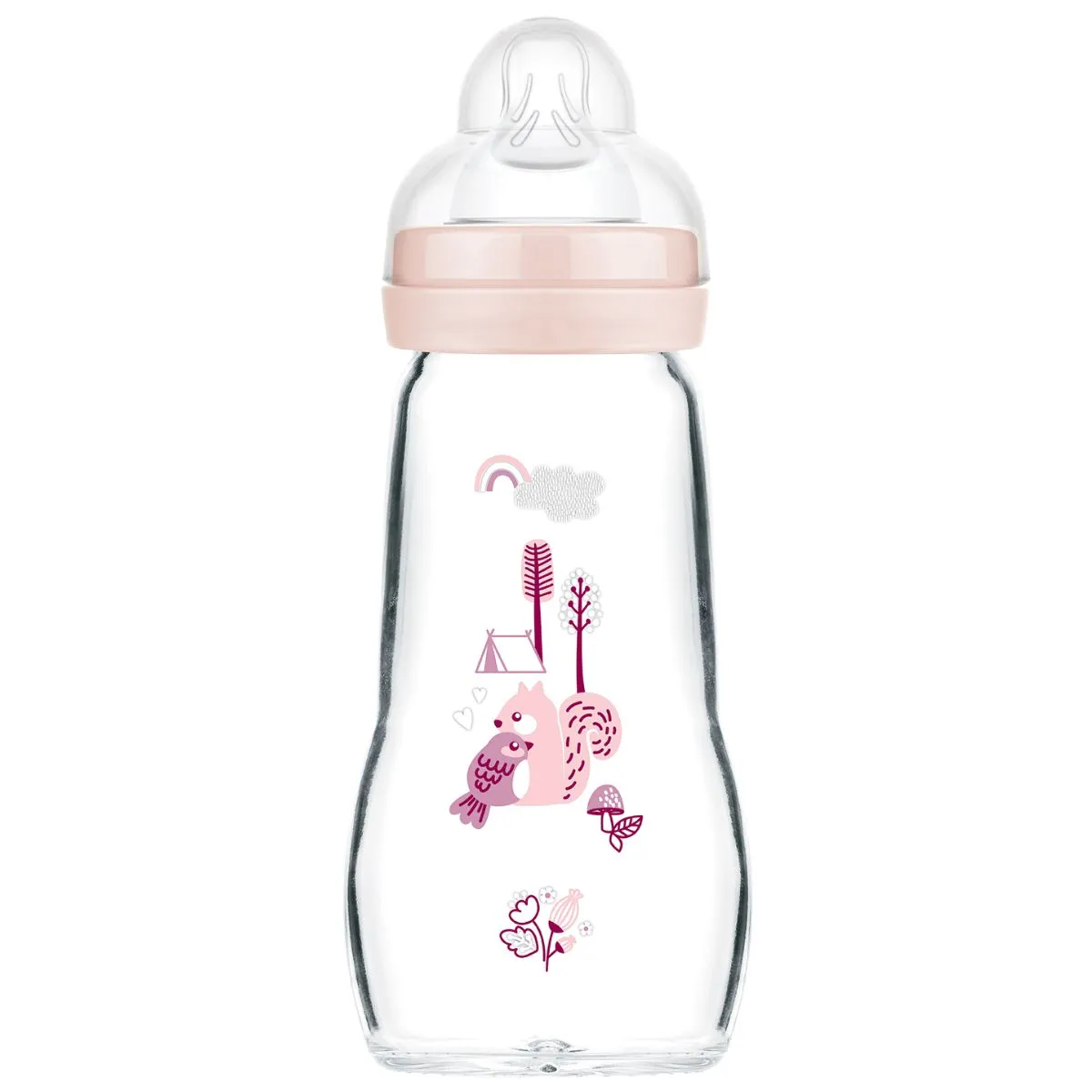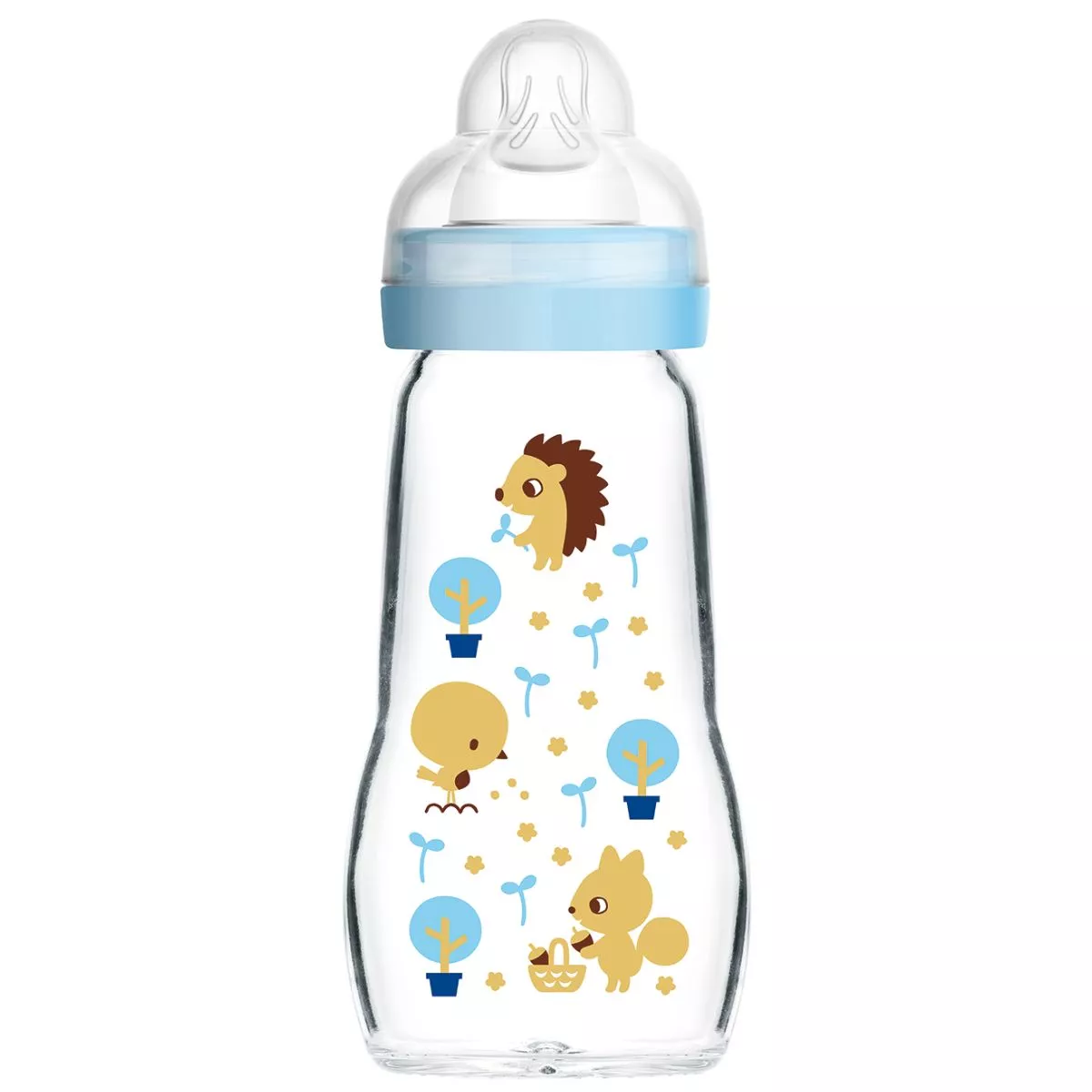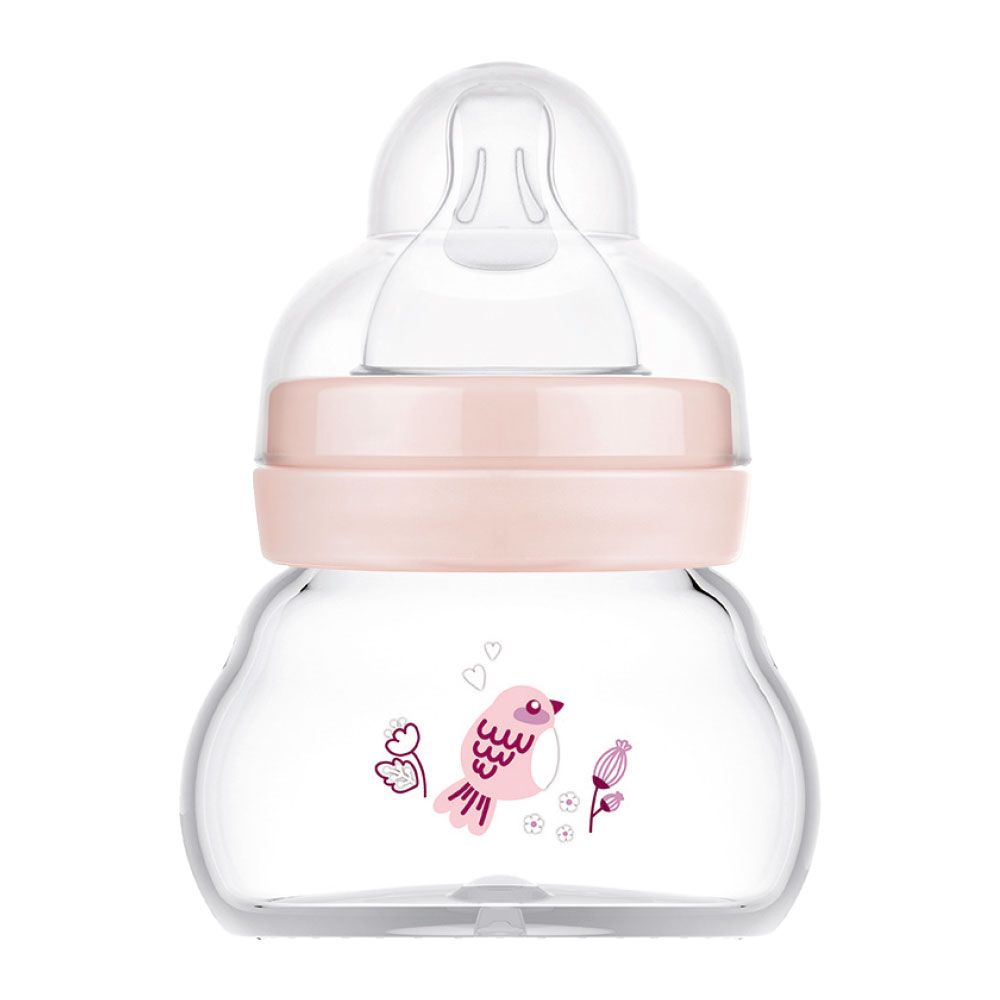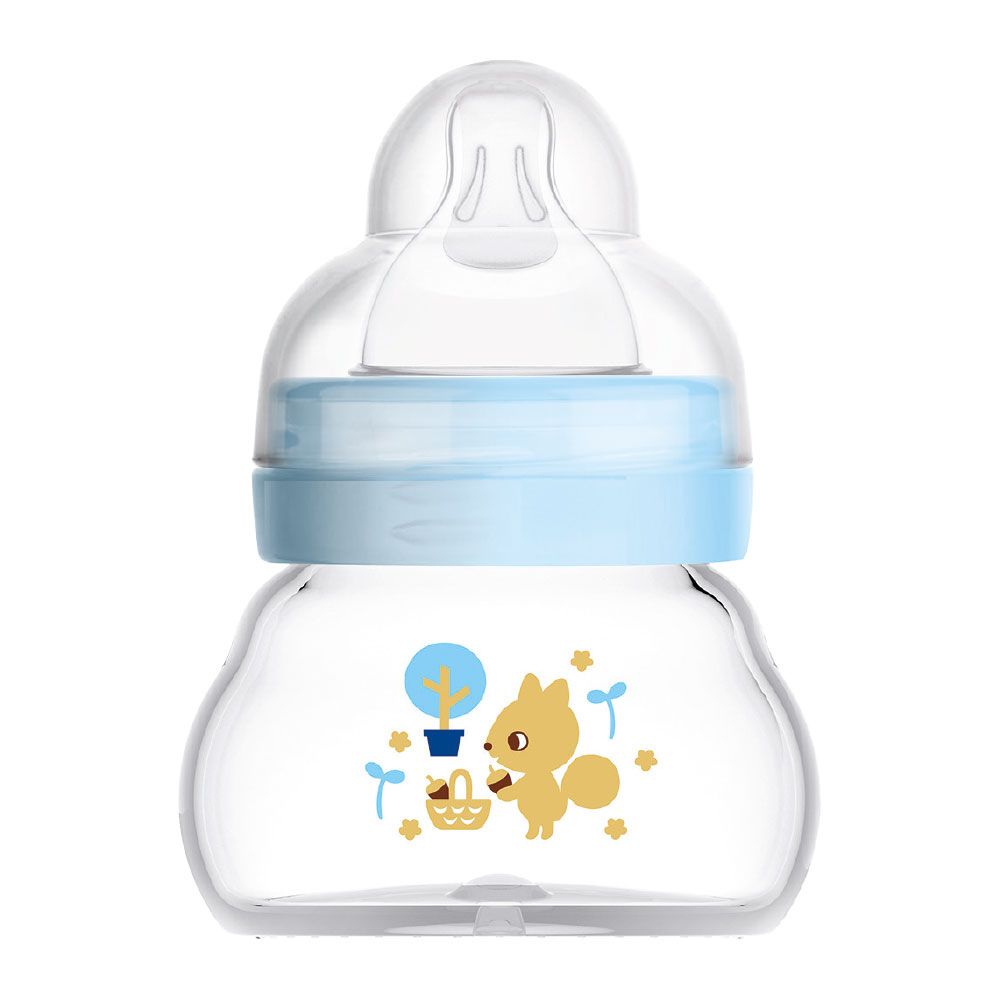Spill-free Teat - for Baby Bottles
The MAM Teat with SkinSoft™ silicone surface makes drinking from a bottle so familiar for babies.
Baby approved: 94% of babies accept the MAM Teat with SkinSoft™ surface*
- For 4+ months
- Unique flat shape – always fits perfectly in baby´s mouth
- Particularly suitable for thinner liquids
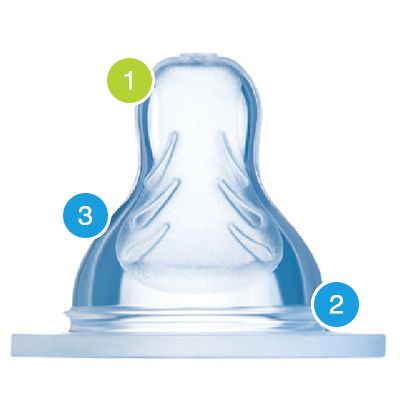
1. SKINSOFTTM SILICONE TEAT
Accepted by 94%* of babies. For a familiar feeling.
2. SYMMETRIC SHAPE
Always fits perfectly in baby's mouth
3. AIR VALVE
Prevents the teat from collapsing. Allows for an even drinking flow.
Bottle teat fits all MAM Bottles and the Trainer+.
| Accessories: | Nipples |
|---|---|
| Age: | 4+ months |
| Nipple Material: | Silicone |
| Product: | Nipple/ Spout |
| Sets, Multi- & Combipacks: | Double Pack |
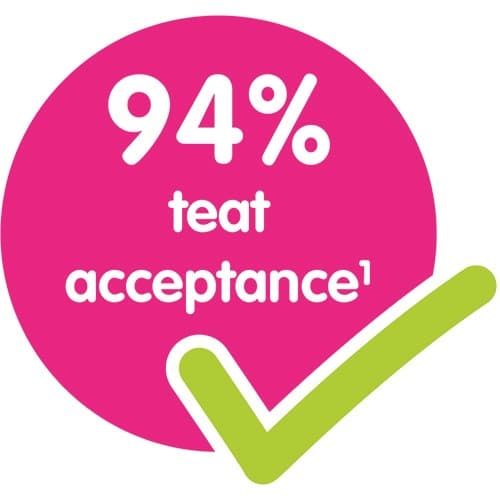
94% nipple acceptance: easily accepted by babies – for a familiar feeling
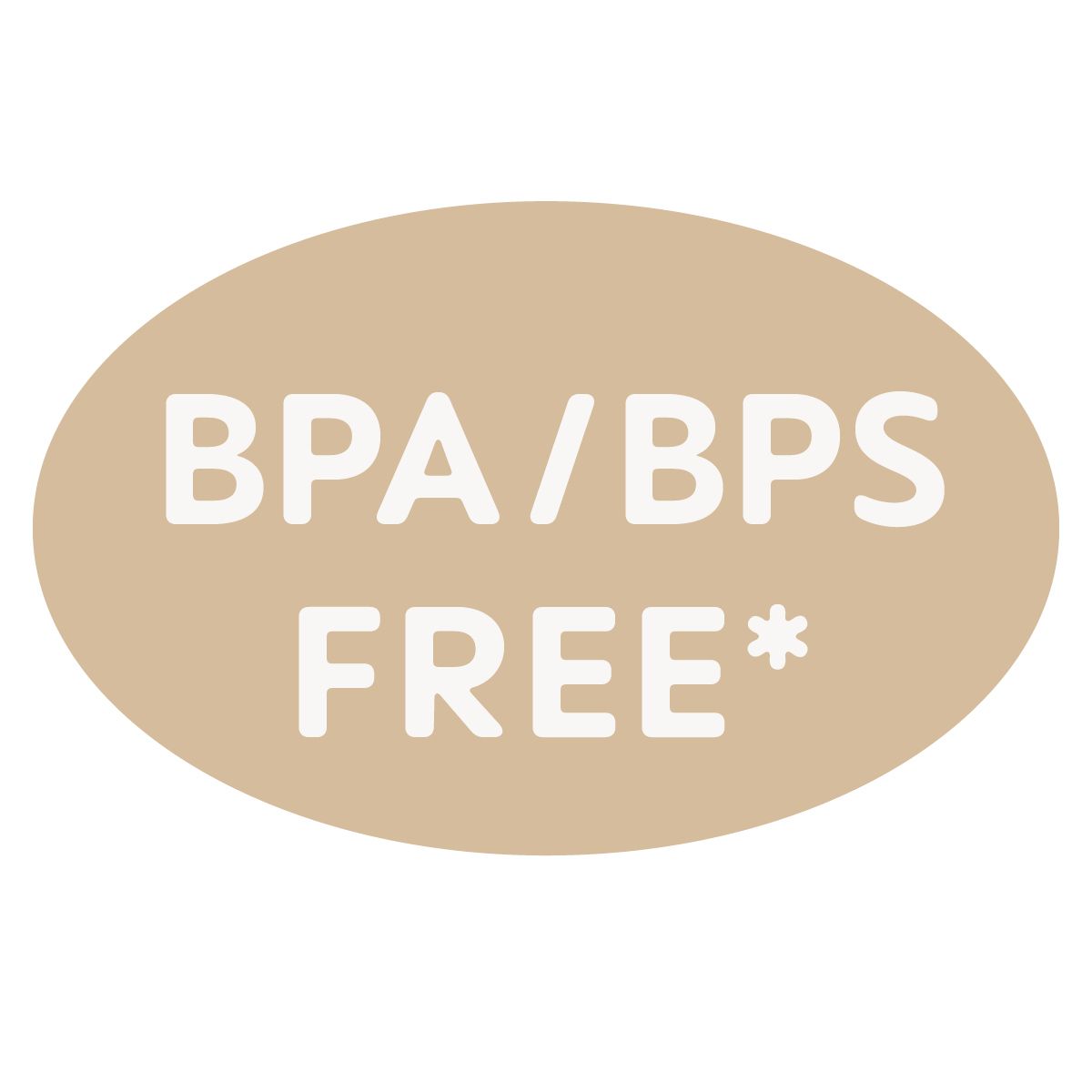
All MAM products are made from materials free of BPA and BPS
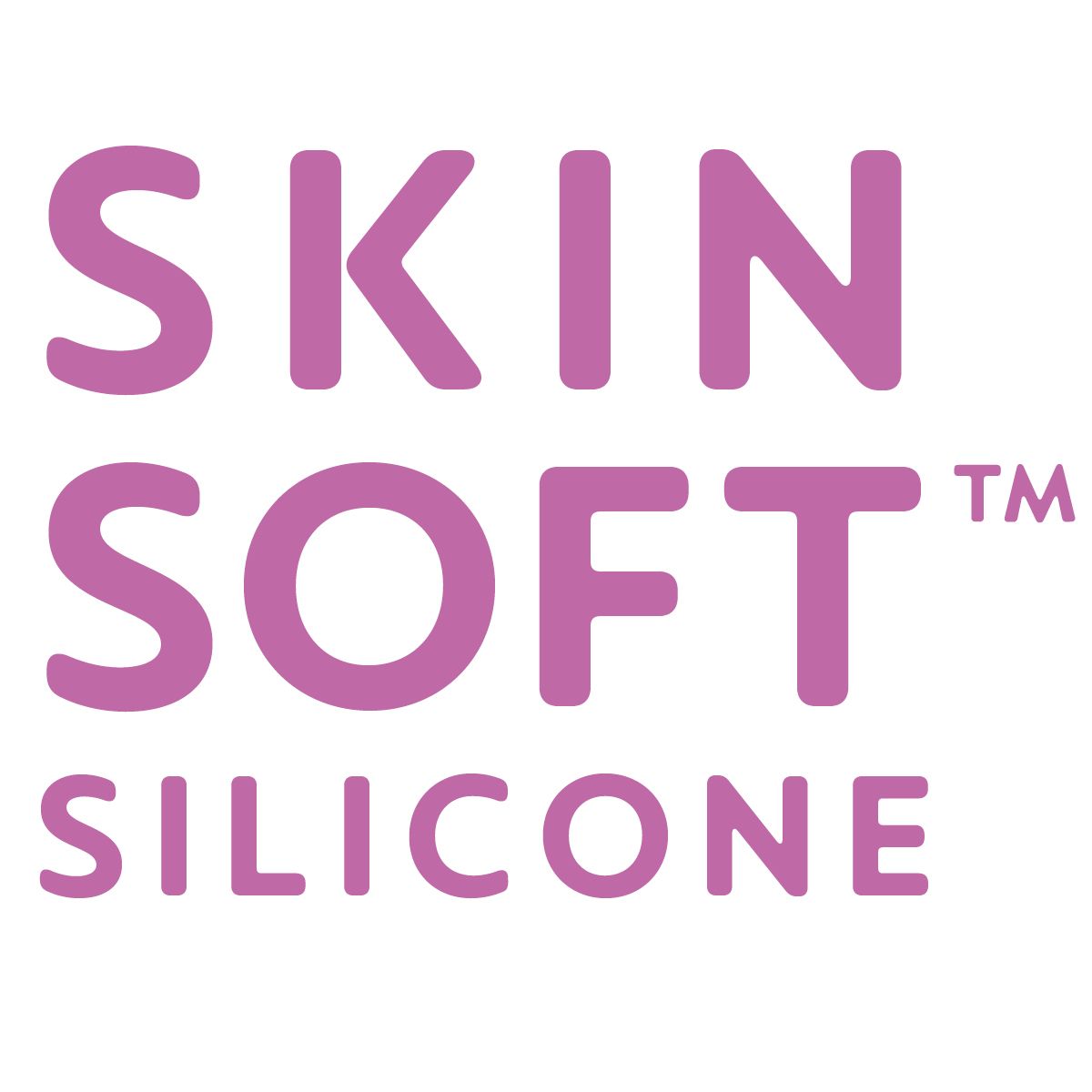
MAM SkinSoft™ Silicone: easily accepted by babies - for a familiar feeling
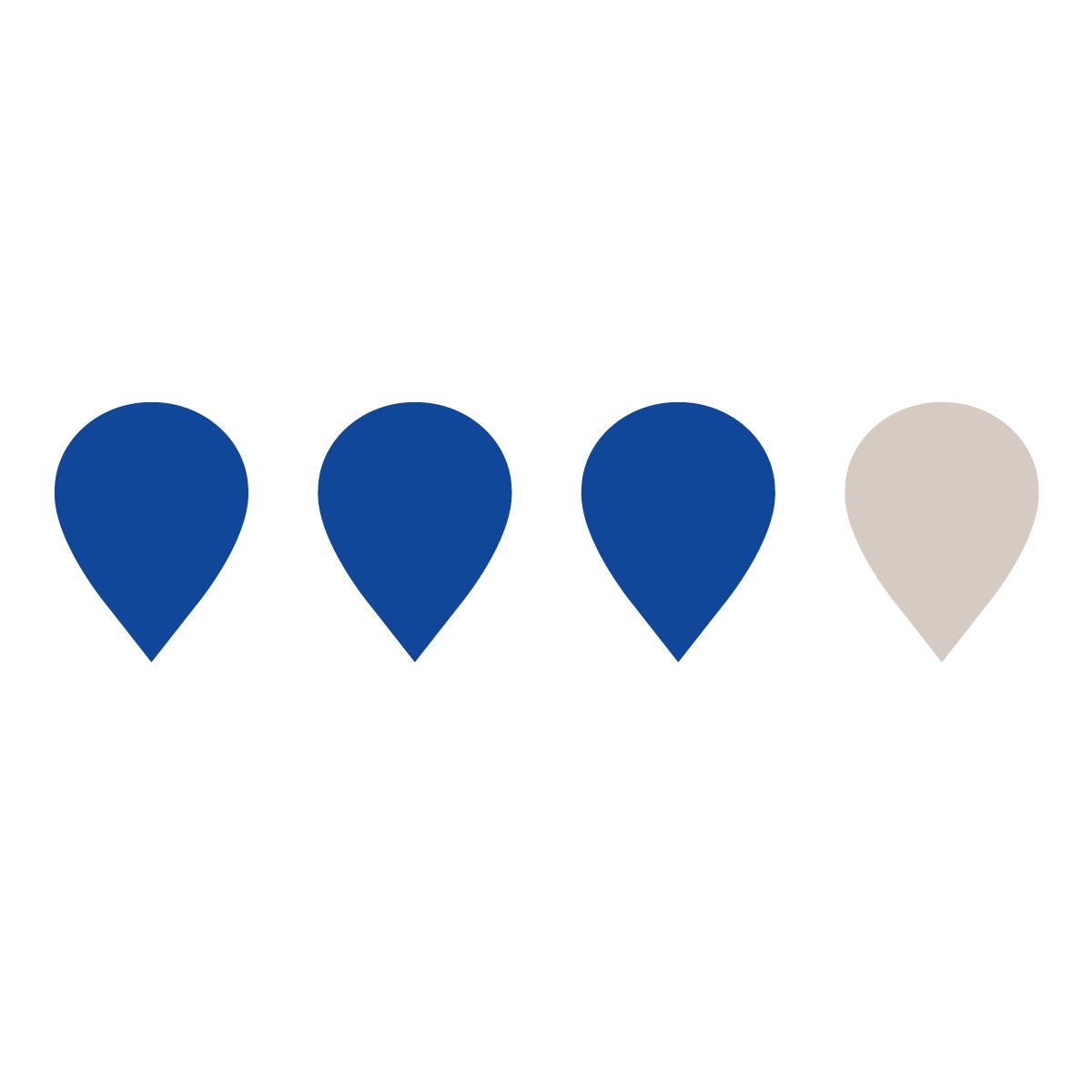
Spill free: for a first independent feeding

For babies from 4 months
¹ Market research 2009-2020, tested with 1,572 babies.
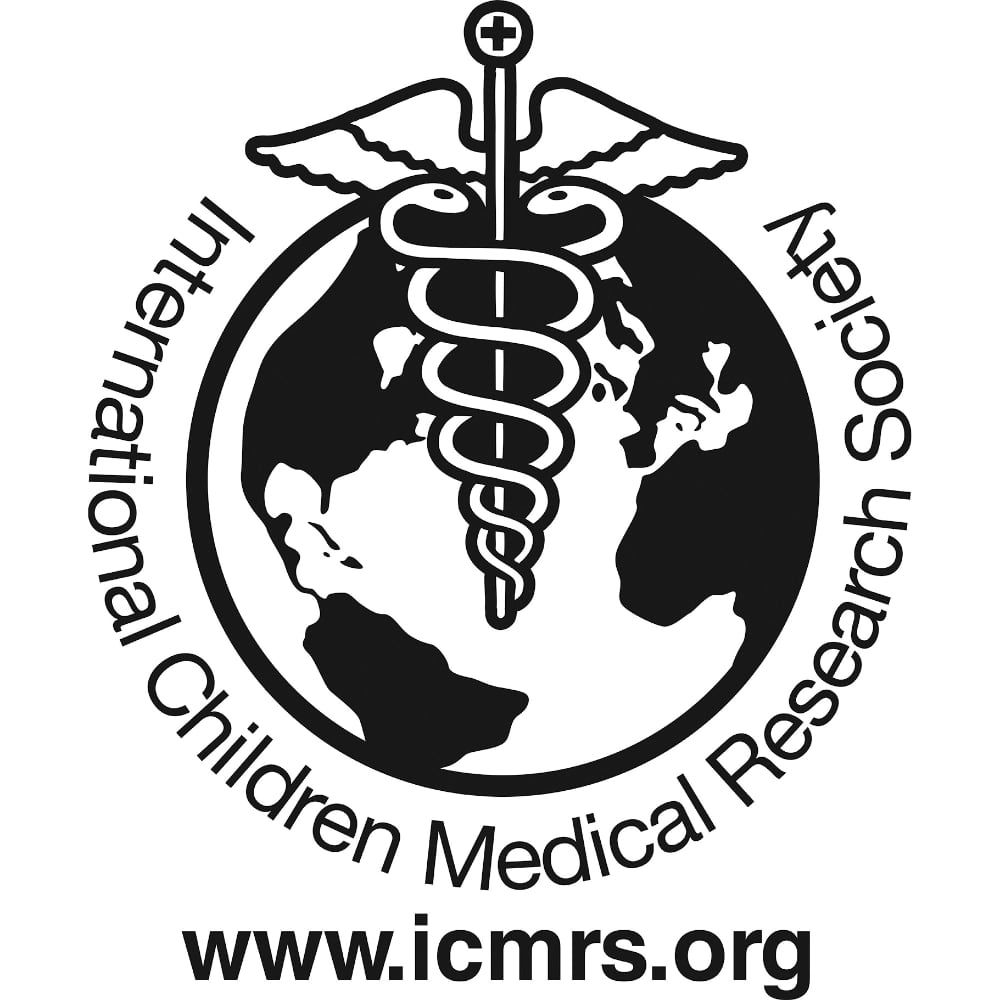
DEVELOPED WITH MEDICAL EXPERTS
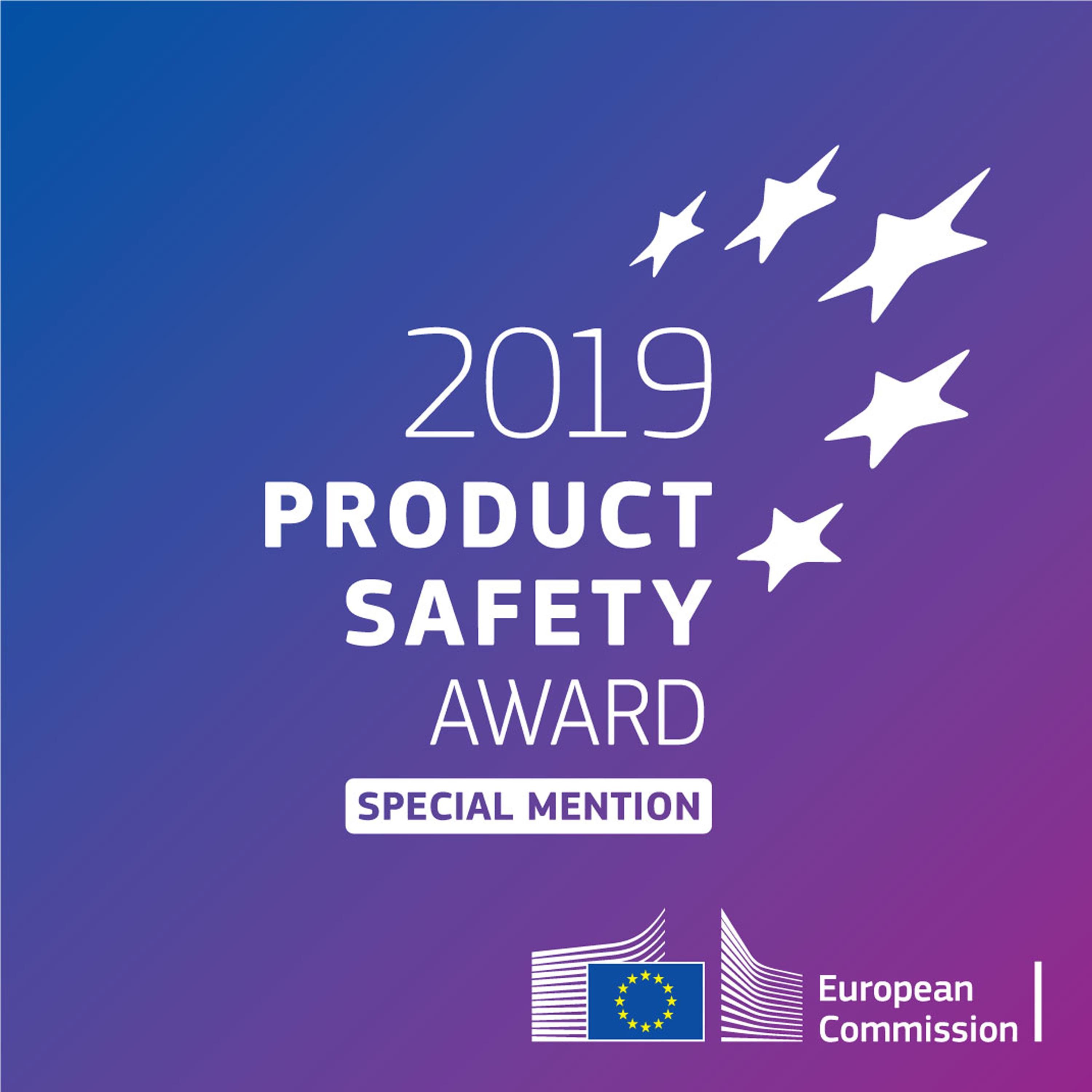
HONORED WITH THE EU PRODUCT SAFETY AWARD 2019
For hygiene reasons, the nipples should be replaced at regular intervals. Simply check the nipple each time you are about to use the bottle – especially when baby already has teeth – and replace it when the first signs of damage or weak points become apparent.
MAM has developed an innovative silicone nipple: the SkinSoft™ nipple. The silicone nipple is silicone with a difference as it is soft and feels like mom's breast. Thanks to the anti-slip surface, the soother easily stays in baby's mouth.
The MAM nipple is easily accepted by 94%* of babies thanks to its SkinSoft™ silicone surface and its unique flat shape, which feel so familiar to babies. This facilitates a switching between breast- and bottlefeeding.
(*Market research 2009-2023, tested with 1,808 babies)
Yes, our MAM pacifiers support baby’s healthy jaw and teeth development. MAM collaborates with medical experts from various disciplines to help develop and design innovative, physiologically shaped pacifiers that suit baby’s various developmental stages.
All MAM pacifiers have a flat and symmetrical nipple shape: there is no ‘top’ or ‘bottom’. This special nipple shape ensures that our pacifiers are always correctly positioned in the babies’ mouth.
MAM pacifiers have a ventilation system in the teat. In more detail, when your baby closes its mouth down on the teat, the air from inside the nipple is pushed out through the ventilation system, thereby flattening the nipple, and adapting to the baby´s individual oral cavity.
Bottle nipples are simply rinsed with water and mild cleaning agent or cleaned in the upper compartment of the dishwasher.
The nipple is sterilized before it is first used and then at regular intervals.
Bisphenol A (BPA) is an important component for the manufacturing of polycarbonate (PC), whereas Bisphenol S (BPS) is an organic chemical used to make polysulfone. Among other items, food packaging, plastic utensils and baby bottles are just a few examples of products made with PC, whereas the main usage of BPS is in thermal papers and inks. The problem: Trace amounts of chemical substances gradually leach out of the plastic into the food and might eventually get into the body. This can affect small children and infants in particular.
As a result of exposure to BPA, experts and studies have seen disruptions to the hormone system and brain, diabetes and heart damage as well as an increased risk of cancer. Although scientific evidence is not yet conclusive, the European Commission - based on the precautionary principle - has banned the usage of BPA in baby bottles in order to protect the health and safety of babies and small children.
MAM has developed bottle nipples in six different sizes. This means that the size of the hole is always perfectly matched to the type of food: The correct flow speed for the food ensures that babies always suck vigorously and thus aids their healthy development.
Six smart sizes for perfect enjoyment while sucking:
Size 0: Extra small for newborns - ideal for breastmilk & formula
Size 1: from birth onwards – for baby’s first food which is particularly free-flowing
Size 2: from 2 months – perfect for the baby who is now slightly better trained
Size 3: from 4 months – baby sucks more vigorously and drinks faster
Size x: from 6 months – the ideal teat for mashed-up food
Spill-free teat: from 4 months - ideal for baby’s first independent drinking tries
